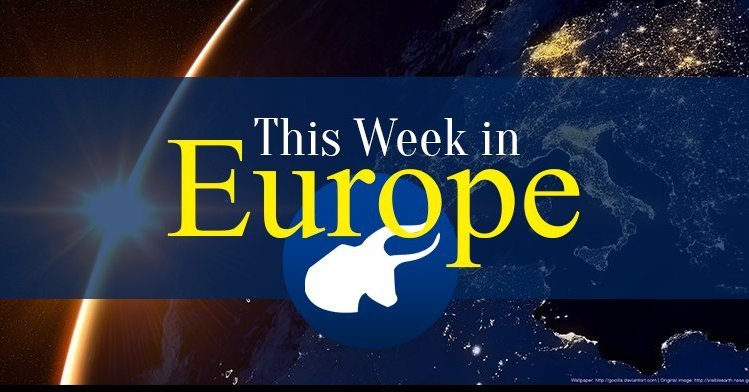EU and Mercosur agree trade deal
After 20 years of negotiations, the EU and Mercosur (which consists of Brazil, Uruguay, Argentina and Paraguay) have agreed on an extensive new trade deal. South American states have some of the most restricted economies when it comes to international trade, making this deal a significant victory for European businesses seeking to trade with the region. The agreement, which had been stuck in seemingly hopeless negotiations for years, was given fresh impetus by the arrival of Donald Trump and the start of a global trade war involving Europe, the US and China. To counter the trend in growing protectionism, the EU has doubled down on efforts to promote free trade and particularly to sign off deals with major economies such as Canada and Japan. The EU is already Mercosur’s biggest trade and investment partner and its second largest for trade in goods, a trend that will likely be reinforced by this deal. However, it will still need to receive further approval before it can come into force, with concerns that environmental groups and parties in Europe may try to block it.
EU and Vietnam to sign trade deal
Besides concluding the Mercosur deal, the EU is also set to sign a trade and investment agreement with Vietnam this Sunday. With a population of 95 million, Vietnam is one of the biggest countries in South East Asia. The European Commission says that the agreement will remove almost all tariffs on goods, remove technical obstacles in sectors like the car industry, allow European companies to compete on an equal footing for public procurement projects in Vietnam, and protect a range of traditional European food products. Protection of labour rights is among the norms that the EU promotes through the agreement.
ECJ defends rule of law in Poland
The European Court of Justice has ruled that the Polish government’s attempts to lower the retirement age for judges on its Supreme Court is a breach of EU law. The move would have forced the retirement of 40% of the Supreme Court judges and was widely criticised as an attempt by the right-wing populist government in Poland to stack the Court with judges more politically favourable to the ruling party. The ECJ judged that the ‘irremovability of judges’ is essential to their independence and that the attempt at forced early retirement by the Polish government was tantamount to undermining that principle. This was deemed to be in violation of Article 2 of the Treaty on European Union, which commits the Member States to a set of values, including the rule of law. The ECJ ruling reflects an important step in defending democratic norms within Europe, a fight that has been slowed by the reluctance of some national governments to criticise another Member State.
Donald Tusk stands up to Putin’s ‘liberalism is obsolete’ claim
The European Council President Donald Tusk defended the liberal world order after Russian President Vladimir Putin had said that liberalism had become obsolete. In a Financial Times interview, Putin had spoken against multiculturalism, open borders and against modern trends in the LGBT+ discussion. Donald Tusk, who was at the G20 summit in Osaka, Japan, said that what he finds obsolete is “authoritarianism, personality cults, the rule of oligarchs”. Under the Polish communist dictatorship in the 1980s, the young Donald Tusk was active in the Solidarity movement that spoke out against the authoritarian government.
Europe suffers from heatwave
In a rare June heatwave, temperatures have exceeded 40 degrees in various places in Europe. Especially the heatwave in France has made headlines, as the country’s all-time heat record was broken on a number of occasions this week. On Friday, a temperature of 45.9 degrees was measured in Gallargues-le-Montueux in Southern France. In the past, strong heatwaves have resulted in thousands of deaths in France and other European countries.
Refugee rescue boat arrives in Lampedusa, captain arrested
The Sea-Watch 3 refugee rescue boat, run by a German non-profit organisation, docked in a port on the Italian island of Lampedusa. At the time, the boat had 40 migrants on board, saved from drowning in the Mediterranean. Italian authorities had not given permission for the boat to arrive in Italy, which resulted in a two-week conflict between the boat and Italian authorities. As the boat landed, the captain Carola Rackete was arrested. A number of other European countries had agreed to take the 40 migrants, so that Italy (population: 60 million) would not need to bear the immense burden.


Follow the comments: |
|
